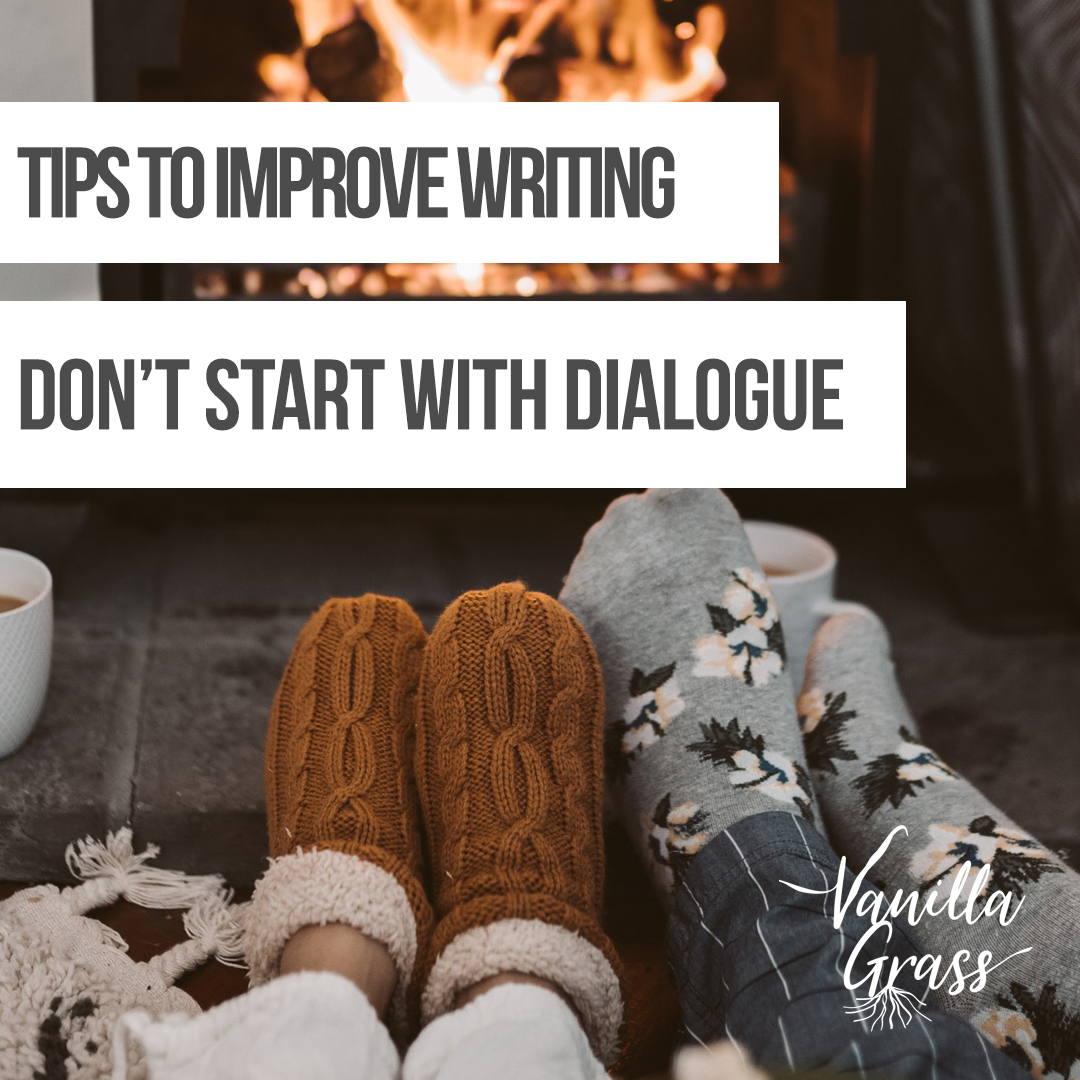Tip #6 to Improve your Writing: Don’t Start with Dialogue
I know I’ll get backlash for including Tips to Improve Writing (#6 – Don’t Start with Dialogue) in our series, but stories are almost always better when they start with something other than dialogue.
“But what about–“
Yes, some amazing authors have started their stories with conversations, but beginning with dialogue has some caveats that you need to understand. Today we’ll discuss three reasons to persuade you not to start with dialogue.
Don’t Start with Dialogue because we Don’t Know Who’s Talking

When you start with dialogue, the reader has no idea who is talking and why their comment or question matters. “Stop touching my butt,” will come across very differently in various scenarios. For example, when spoken by a group of teens messing around, this could be a lighthearted conversation. In contrast, if a nun speaks this in a convent, there is an entirely different reaction.
If you start with dialogue without giving any indicators of the character, readers won’t care. They won’t react because you haven’t given them enough information. So make your dialogue count by painting your character first.
Starting with Dialogue doesn’t tell us WHO Hears the Conversation
In the above example (“Stop touching my butt”), the person your character is talking to is not identified. For instance, an adult male saying this to his Mama in a changing room while he’s getting fitted for a tux is one thing. But a kid saying this to his teacher after school during detention with the lights out is another.
If you want your dialogue to matter, we need to know who your character is speaking to. Yes, you could start your book like this: “Stop touching my butt,” said Zach, an eleven-year-old, to his teacher, a creepy middle-aged man, during detention with the lights out. But who would want to keep reading your story with writing like that? Show vs. tell is essential at the beginning of the story. The first sentence makes a promise to the reader. If you promise to tell every detail instead of show, they will promise to stop reading.

Improve Writing by Establishing a Setting
In addition to the above reasons not to start with dialogue, defining setting is essential. “Don’t drop your drawers,” could mean very different things in a furniture store vs. a chapel before a wedding.
If you think my advice about starting with dialogue doesn’t apply, try a few examples of starting your book without a quote. How does it change the mood/tone/flow of your story? After you give my advice a good try and you’re still not convinced, then use this adage from my high school boss who loved to tease me about dating.
“If you can’t be good, be good at it.”
Dedra’s High School Boss
This advice applies any time you break the “rules” of writing. If you think you need to go against the grain, then do such an amazing job that no one questions you.
Or take my advice and don’t start with dialogue.
Thanks for reading Tips to Improve Writing (#6 – Don’t Start with Dialogue). Hopefully, I’ve convinced you to establish characters and setting before you dive into quotes. But if not, be dang good at it.
If you’ve enjoyed reading this article, don’t be a stranger. Sign up for our newsletter or check out more Tips to Improve your Writing.




